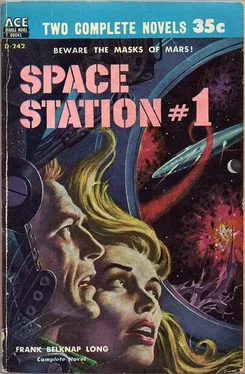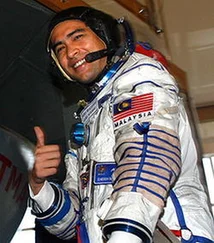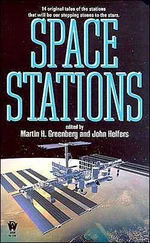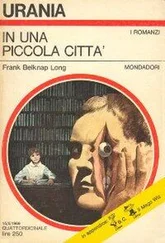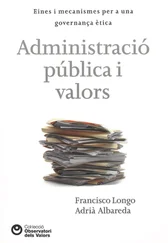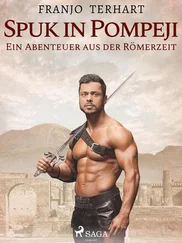The buildings had undoubtedly been designed as administrative units of an industrial empire — a beginning empire in a new world. An empire predatory, avaricious, merciless. Yet Ramsey had seemingly allowed his desire for a home to gain dominance here, had allowed the emotions common to all men to influence his taste in interior architecture in at least one of the buildings.
Chalk up that much to Ramsey’s credit. In that respect at least, he was superior to Henley. In that respect at least a man of good will could take sides, all apart from the personal issues involved. Henley was a predatory vulture on all counts, his talons constantly spread, constantly crimson-tipped. Ramsey was a vulture too, but in the depths of his mind he knew it. Part of the agony was shared by him, and in one desperate, despairing part of his personality he had tried to be creative.
Corriston ascended the staircase swiftly, casting one brief glance at some murals and then ignoring them. The second floor landing stretched away into shadows, bisected by a wide corridor dimly lighted by overhead lamps. The second floor had an administrative building aspect and so did the third floor, which seemed in all respects its exact duplicate.
Corriston’s excitement grew as he mounted the stairway. He felt like a man poised on the brink of a precipice with no assurance that he would not be hurled to his death; a man aware that tragedy would not strike him like a thunderbolt at any moment; and yet also like a man who thought and felt differently from the trapped and the desperately despairing.
He felt very confident, very sure of himself, and it seemed to him that there was no danger that he could not surmount, and deep within him there was something that exulted in the thought and kept him moving steadily upward.
The third floor was like the second, its long central corridor dwindling away into shadows. Down it he moved cautiously, remembering what the guard at the gate had said. The third floor, the last door on your left.
Ramsey was in conference. But it wasn’t a conference of industrial associates planning a division of spoils. Ramsey was talking to a killer under duress.
Corriston was half way down the corridor when he heard the shot. It rang out in the stillness with a terrible clarity, sending echoes reverberating throughout the building, stopping Corriston in his tracks.
For an instant the silence remained absolute, as if the shot had somehow silenced all life within the building. Even Corriston’s breathing was affected by it, so that for an instant he remained like a man horror-blasted into immobility, frozen, a statue with waxen features and widely dilated eyes.
Then, abruptly, he ceased to be a statue. He broke into a run, heading for the door from which the shot had come.
He came to the door and saw that it did not slide open on a panel. It was massive, with a knob jutting out from it, and when he grasped the knob it swung inward instantly and soundlessly and he found himself in a large, blank-walled room brightly illumed by three circular overhead lamps.
Ramsey was sitting stiff and straight before a desk that was cluttered with reference files, manuscripts in folders, pens, pencils and other writing materials. His face was drained of all color, and his eyes were wide and staring. He was looking directly at Corriston, and yet he did not seem to see Corriston.
He did not appear to be staring at anything in particular, that small, shrunken, unimpressive-looking little man with graying temples and a look of blank incomprehension in his eyes that chilled Corriston to the core of his being.
Shaking, wishing that the eyes would close or brighten with relief, or do anything but remain so stonily indifferent, Corriston moved closer to the desk.
He saw at once that Ramsey was close to death. He had been shot in the chest. There was a dull red stain on his chest, and,even as Corriston stared it widened, a butterfly pattern of red, like a Rorschach seen through the eyes of a homicidally inclined psychotic.
Suddenly Ramsey moved. He caught hold of the desk edge, and swayed a little, but his eyes remained filmed, blankly staring.
Corriston was bending above him when a familiar voice said: “He’s done for. Nothing you can do for him. We had an argument and he lost his head. He just couldn’t see it my way. So I made a mistake and shot him. It was a mistake, all right. I lost my head. Now I’ve got nothing to lose by killing you”.
Corriston raised his eyes slowly. He had one chance in a hundred perhaps. He knew it; he sensed it. Henley had somehow managed to stay out of sight for an instant. The room was very large. There were shadows in it, and Henley had apparently flattened himself against the wall behind the desk, in deep shadow.
But now he was standing very straight and still behind the desk, ignoring the shuddering form of the man he had shot, little dark deathheads dancing in his eyes.
Henley’s nearness did not bother Corriston. Death at ten feet could be no more final than death at a hundred yards.
Only one thing bothered him. Events could move fast when you were close to a killer.
He didn’t intend to let them move fast. Not for him, at any rate. He let his eyes rest for an instant on the gun in Henley’s hand, his thoughts racing. He knew that he’d be as good as dead if he made a single concession.
Don’t let him know that the gun worries you. Pretend that the odds are even, even though he’s got the drop on you.
Corriston said: “How do you know he’s fatally wounded? The wound’s three inches below his heart. You’re taking a hell of a lot for granted. You just said you made a mistake in shooting him. If he’s rushed to a hospital that mistake may not be your last. You’ll have a chance to go to work on him again”.
Henley shook his head, his lips tightening. “Don’t be a fool. He’ll be dead in five minutes”.
“I’m not being a fool”, Corriston said. “What will you stand to gain by shooting me and letting him die? You’ve got his daughter,, but a dead man won’t be able to ransom her”.
For a moment, nothing happened. Henley had made no attempt to draw his gun, and he did not draw it now. He stood very quietly staring at Corriston, breathing heavily, a strange, withdrawn look in his eyes.
Perhaps he was thinking over what Corriston had said. Corriston wondered about that for an instant, and then dismissed it from his mind. You did not take anything for granted when you were standing that close to a killer.
It was probably too late to save Ramsey. But for the first time he was standing very near to Henley with a weapon beneath his hand. If he drew his gun instantly and shot Henley through the heart Ramsey might have a chance. Otherwise...
Somehow he couldn’t do it; not without giving the other some slight warning, not without whipping his hand to his gun with a vigor that was clear and unmistakable. In matters of crime a fair man is at a disadvantage. He can only deal with a murderer in one way.
He drew a split second ahead of Henley. He shot Henley three times, the gun blazing in his hands, and it did not seem important to him that Henley had also drawn his gun. A tight knot reached into his stomach as Henley’s gun blazed, but he kept right on firing.
Henley died missing him, not scoring at «11. That was the incredible thing. Henley, an expert shot, a genius at massacre, had missed him clearly with five shots and now he was down on the floor, clutching at his stomach, dragging himself along, while beneath his fingers a dull red stain grew.
His eyes turned glassy suddenly. He tried twice to raise himself but he fell back each time. He did not speak at all. Blood from his punctured lungs flooded up into his mouth, and with a terrible, convulsive trembling of his entire body he rolled over on his side and lay still.
Читать дальше
